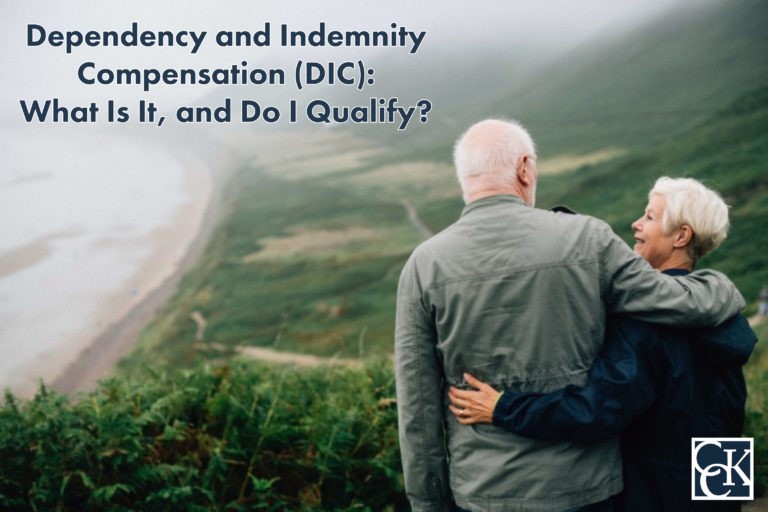Do Spouses of 100% Disabled Veterans Get Benefits After Death?
When it comes to the benefits provided to the spouses of 100% disabled veterans after their death, there are certain important considerations to understand. In this article, we will provide you with comprehensive information on this topic and address any queries you may have.
Understanding Benefits for Spouses of 100% Disabled Veterans
After the death of a 100% disabled veteran, their spouse may be eligible for certain benefits. These benefits are aimed at providing support and assistance to the surviving spouse during a challenging time. While the specific benefits may vary depending on various factors, it is crucial to know the general provisions available.
Dependency and Indemnity Compensation (DIC)
One of the primary benefits for spouses of 100% disabled veterans after their death is the Dependency and Indemnity Compensation (DIC). DIC is a tax-free monetary benefit provided to eligible surviving spouses.
To qualify for DIC, the following conditions must be met:
The deceased veteran must have died due to a service-related disability.
The surviving spouse must have been married to the veteran at the time of their death.
The surviving spouse must not have remarried or entered into a new marriage before the age of 57.
The surviving spouse must not be eligible for benefits based on their military service.
It’s important to note that DIC benefits may also be available to the surviving children of the disabled veteran under certain circumstances.
Additional Benefits
In addition to DIC, other benefits may be available to the surviving spouse of a 100% disabled veteran. These benefits include:
Healthcare Benefits: The surviving spouse may be eligible for healthcare benefits through the Civilian Health and Medical Program of the Department of Veterans Affairs (CHAMPVA) or Tricare.
Education and Training: The spouse may be eligible for educational assistance under the Dependents’ Educational Assistance (DEA) program.
Home Loan Guarantees: The surviving spouse may be eligible for home loan guarantees through the Department of Veterans Affairs (VA).
Burial Benefits: The VA provides burial benefits, including a burial plot, headstone, or marker, and reimbursement for burial expenses.
Applying for Benefits
To apply for benefits as a surviving spouse, it is important to gather all the necessary documentation and submit an application to the Department of Veterans Affairs. The application process may require providing proof of marriage, the veteran’s death certificate, and other supporting documents.

In conclusion, spouses of 100% disabled veterans may be eligible for benefits after their death. Dependency and Indemnity Compensation (DIC) is one of the primary benefits available, along with additional benefits such as healthcare, education, home loan guarantees, and burial benefits. It is crucial to meet the eligibility criteria and submit the required documentation to apply for these benefits. If you believe you may be eligible, it is recommended to contact the Department of Veterans Affairs for further guidance and assistance.
Frequently Asked Questions
1. Do spouses of 100% disabled veterans receive benefits after the veteran’s death?
Yes, spouses of 100% disabled veterans may be eligible for certain benefits after the veteran’s death. These benefits include Dependency and Indemnity Compensation (DIC) and Survivor’s Pension.
2. What is Dependency and Indemnity Compensation (DIC)?
DIC is a tax-free monetary benefit provided to eligible surviving spouses of disabled veterans. It is paid monthly and is designed to compensate for the loss of financial support resulting from the veteran’s death.
3. Who is eligible for DIC benefits?
Spouses of veterans who died as a result of a service-connected disability or who were rated 100% disabled for a specific period before their death may be eligible for DIC benefits.
4. What is Survivor’s Pension?
Survivor’s Pension, also known as the Death Pension, is a needs-based benefit available to surviving spouses of deceased wartime veterans. It provides a monthly payment to help with basic living expenses.
5. How can I apply for DIC or Survivor’s Pension?
You can apply for DIC or Survivor’s Pension by completing the appropriate forms available on the official website of the Department of Veterans Affairs (VA) or by visiting your local VA office. It is recommended to seek assistance from a VA representative to ensure a smooth application process.
6. Are there any eligibility criteria for Survivor’s Pension?
Yes, to be eligible for Survivor’s Pension, the surviving spouse must meet certain criteria including income limitations, age requirements, and marital status. The veteran must have served during a period of war as defined by the VA.
7. Can a surviving spouse receive both DIC and Survivor’s Pension?
No, a surviving spouse can only receive either DIC or Survivor’s Pension, whichever provides the higher benefit amount. The VA will determine the most advantageous benefit for the eligible spouse.
8. Are there any additional benefits available for surviving spouses?
Yes, surviving spouses may also be eligible for other benefits such as healthcare through the Civilian Health and Medical Program of the Department of Veterans Affairs (CHAMPVA) and educational assistance through the Fry Scholarship program.
9. How long does it take to receive benefits after applying?
The processing time for benefits applications can vary. It is advisable to contact the VA or a VA representative for accurate information regarding the current processing times.
10. Can I receive benefits if I remarried after the veteran’s death?
In general, a surviving spouse who remarries before the age of 57 is not eligible for DIC benefits. However, there are exceptions to this rule, and it is recommended to consult with the VA for specific guidance based on your circumstances.




